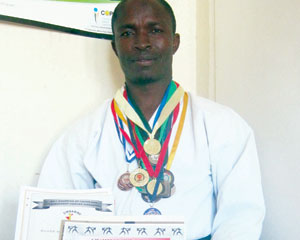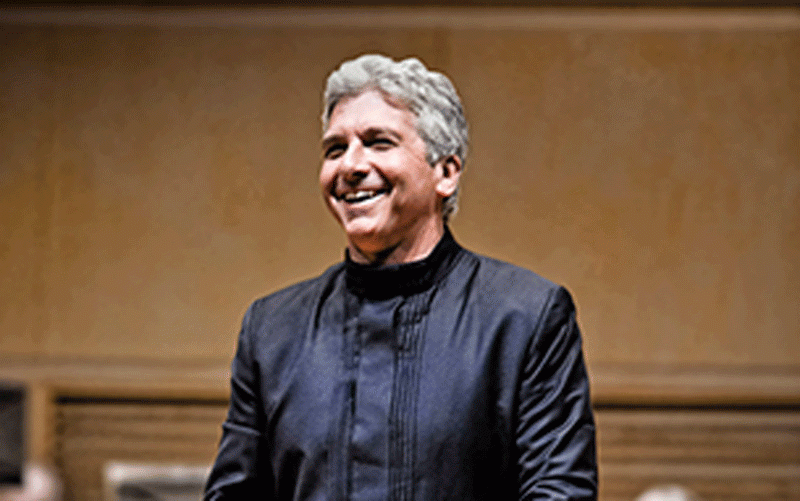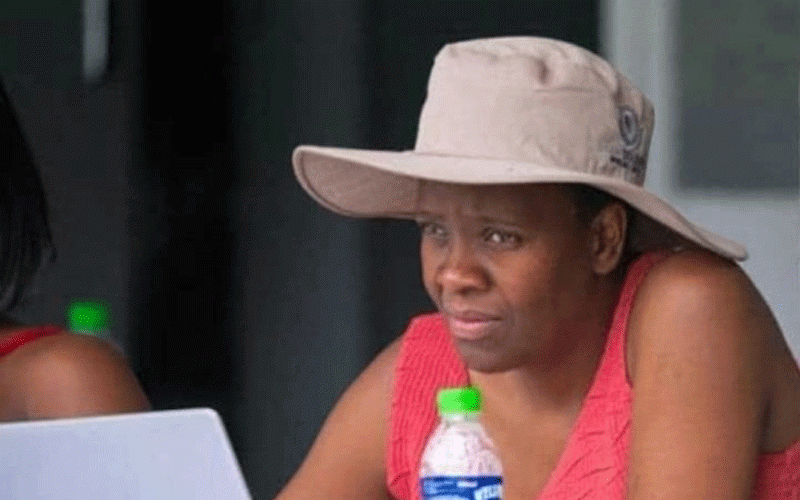
Meeting Gerald Muusha in the streets of Chitungwiza, one would think he is a member of the Johane Masowe sect with his bald head and white robes.
By Own Correspondent
It takes someone to say it more than once for people to really understand that he is a karate champion.
It is the bald head that one can notice even from afar, and a glance at his knuckles will then tell you a long story of bravery and confidence.
At 37, Muusha is not thinking of retiring from the sport anytime soon despite being a victim of the underpaying profession for a long time. To him, karate, which he considers his first love, has done nothing to change his life besides the pride emanating from many victories.
“Karate has done little to change my style of living. But I am a proud man because of what I have achieved in terms of honours from this sport,” he said.
“My wish is to open a karate academy that will help young children who are interested in karate. The academy will also identify talent and I believe it will do a lot in the industry. But the problem is funding,” said Muusha.
Muusha has a long history in the field of Karate.
- Chamisa under fire over US$120K donation
- Mavhunga puts DeMbare into Chibuku quarterfinals
- Pension funds bet on Cabora Bassa oilfields
- Councils defy govt fire tender directive
Keep Reading
“I got into karate at the age of 13 after my late father Albert Muusha encouraged me to do so,” he said.
He began training sessions in 1989 at The Karate Headquarters located along Rezende Street in the capital. However, he stopped training when he was enrolled at a boarding school outside the capital.
In 1994 Muusha returned to the capital where he resumed training. His first major fight came along in 1996 where he won a silver medal at a national junior karate competition that was held in Gweru.
His first regional medal, a silver, came in 2003 at a karate competition that was held here at home.
Muusha — Karate’s unsung hero
For the years that he has been practising karate, Muusha boasts of 12 national karate certificates, 12 national medals, six provincial medals and four regional medals.
“I am not thinking of retiring anytime soon. I still need three more years. If I retire it means my Kata team will be disadvantaged,” he said.
Muusha, who is popularly known as “Sensei”, scooped a bronze medal in Namibia last month at the Zone Six Sadc Karate Championships. The athlete, who holds a Third Dan Black Belt, stressed the need for adequate funding for the sport for the benefit of those who want to earn a leaving through karate.
“The major problem in this industry is that it has no sound funding despite our abilities to excel to greater heights.
“I can tell you that in most of the tournaments that we participate in athletes do use their own funds. The Karate Union of Zimbabwe will chip in but it is not sufficient. For example, in our last trip, I had to fork out money from my pocket to make the trip a success,” he revealed.
Zimbabwe’s karate envronment is very promising but lacks funding which has seen many karatekas failing to take part at world events.











